Understanding Rogue—or, Freak—Waves.

Wild storms make for wild seas, and for hundreds of years sailors have returned to harbor with tales of encountering huge waves in the ocean. They may be called rogue waves or freak waves, but these are really extreme waves that deviate dramatically from the regular wave pattern. Once considered to be the product of imaginative sailors’ minds, extreme waves earned credibility as authoritative reports started to emerge. Dramatic photos reinforced the reports. Today, sophisticated wave-measuring technology and satellite observations help detect these waves, and a 100-foot monster wave has now been experienced—and verified—in the Atlantic.
For the cruising skipper, rogue waves are something to take into account when planning a passage. Calculations from the British National Institute of Oceanography, using a random process formula, suggest that if you take the average height of waves in a train, 1 in 23 waves will be twice the average height, and one wave in 1,175 will be three times the average height. While those figures might give sailors pause for thought, the additional chilling statistic is that one wave in 300,000 will be four times the average height of the wave train. Think about that—you have the prospect of meeting a 60-foot wave when the average height is just 15 feet. However, to put this into perspective, 300,000 is an awful lot of waves, and that equates to only one extreme wave of that size every 6,000 miles. Even then, extreme waves tend to occur only in conditions that you will have tried to avoid anyway. In 65 years at sea, I have experienced three rogue waves, and these monsters appeared only during winds of gale force or stronger.
MY “FREAKS”
This story is from the {{IssueName}} edition of {{MagazineName}}.
Start your 7-day Magzter GOLD free trial to access thousands of curated premium stories, and 9,000+ magazines and newspapers.
Already a subscriber ? Sign In
This story is from the {{IssueName}} edition of {{MagazineName}}.
Start your 7-day Magzter GOLD free trial to access thousands of curated premium stories, and 9,000+ magazines and newspapers.
Already a subscriber? Sign In
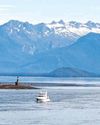
Nord2AK: Nordhavn's 2016 Rendezvous
The seeds were planted in 2012. We had been cruising for several weeks in the remote waters of northern British Columbia, where it isn’t unusual to go for several days without seeing another boat. Then surprisingly, two other Nordhavns sailed into Sea Otter Cove where we were anchored on the west side of Vancouver Island.
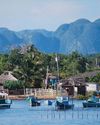
Cuban Sojourn
The second part of a journey along Cuba’s northern coast.

Shop Talk
Daniel Harper Q&A Founder & CEO of Siren Marine talks with us about how marine products are beginning to take advantage of onboard data.
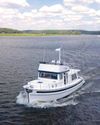
Bye, Bye, Birdie #5
The Need for Speed
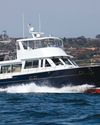
On The Water Duffield 58
It’s not every day that a brand-new 58-foot performance trawler appears on the marketplace radar, but that seems to have happened with the debut of the Duffield 58 Motoryacht.
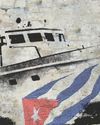
Castro's Mystery Motoryacht
Gianma and the voyage that changed the world.

Bye, Bye, Birdie #6
A Star to Steer Her By.
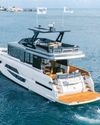
Glass Living
Testing the Modern and Versatile Okean 50.
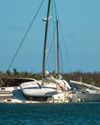
Navionics Spearheads Post-Irma Re-Mapping Effort
Boaters Can Contribute Cartography And Debris/Wreck Locations.
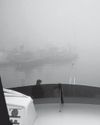
Coping With Fog
Dealing With One of the Most Dangerous Elements of Seamanship.